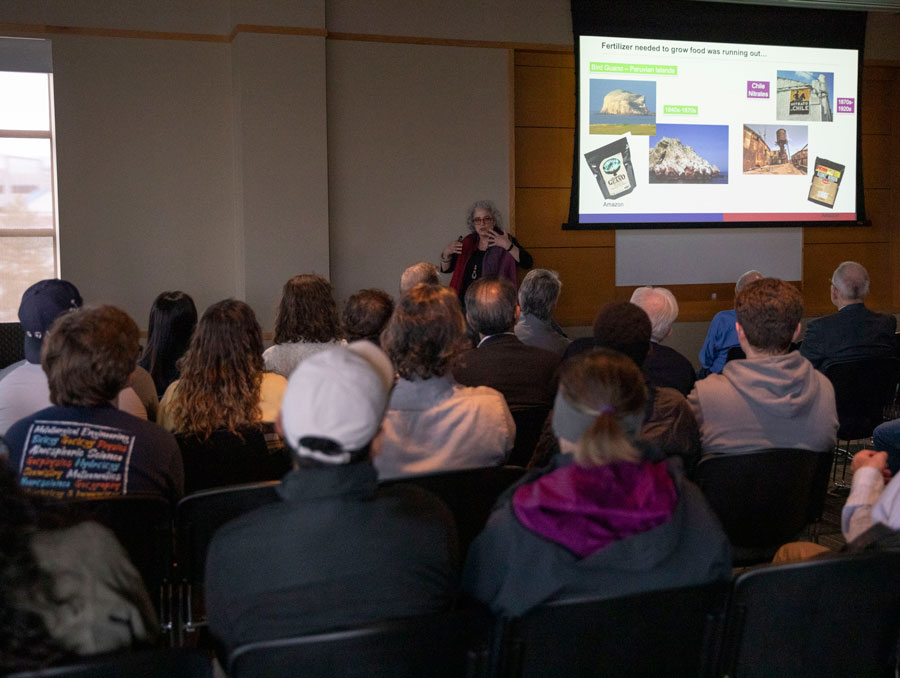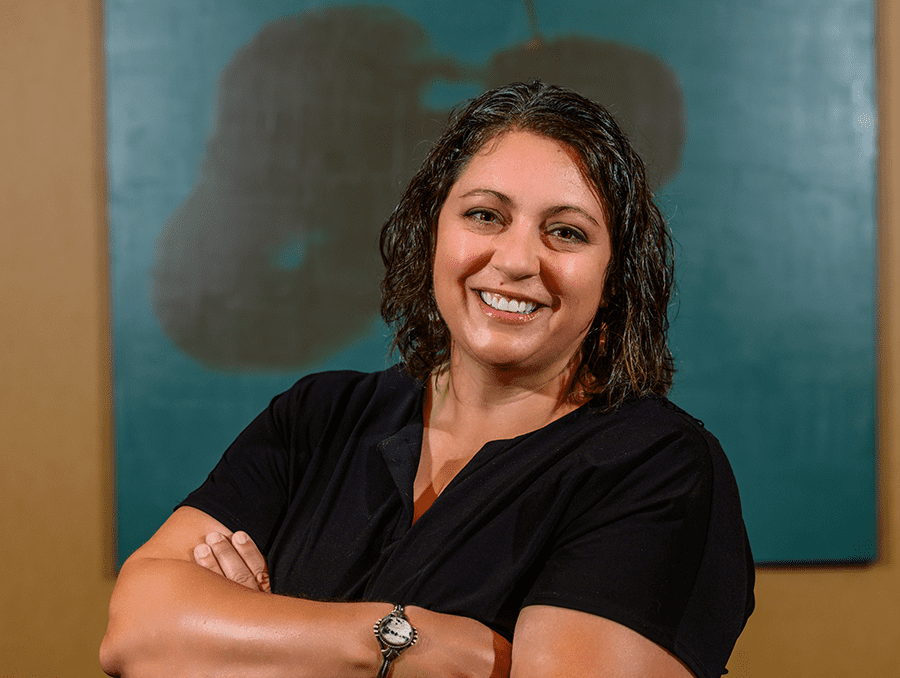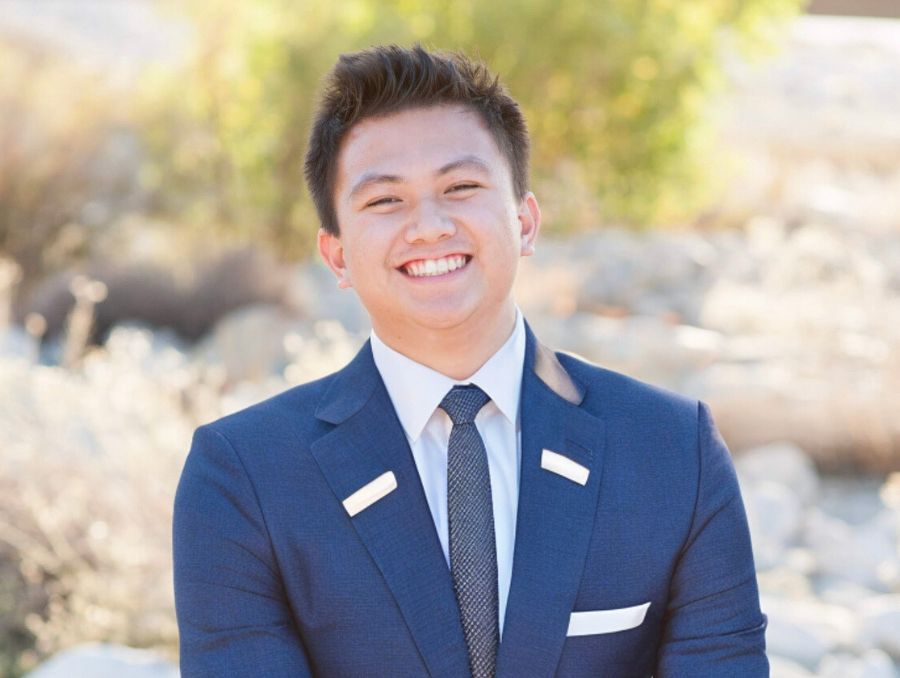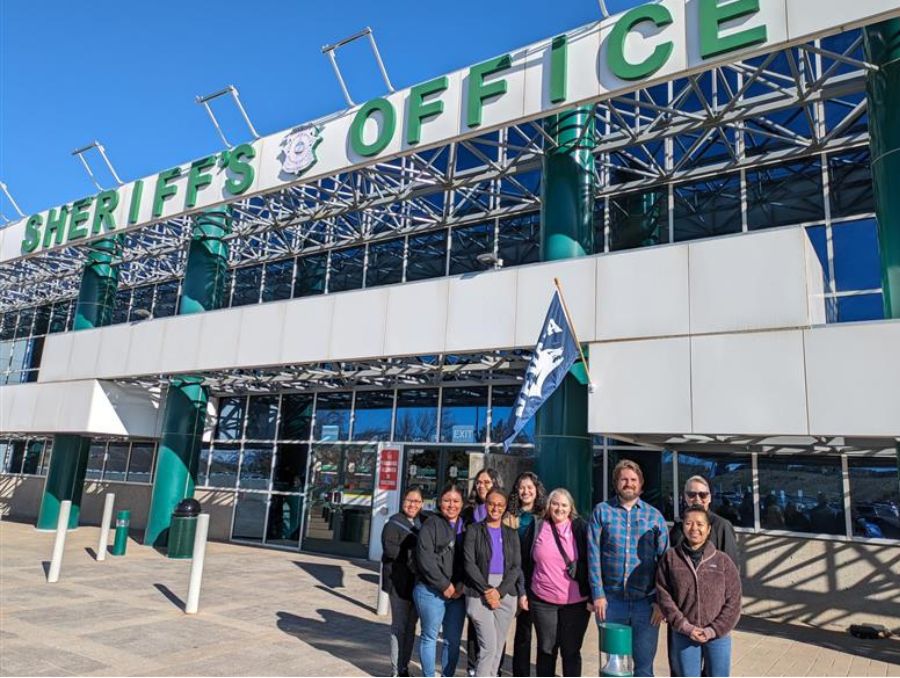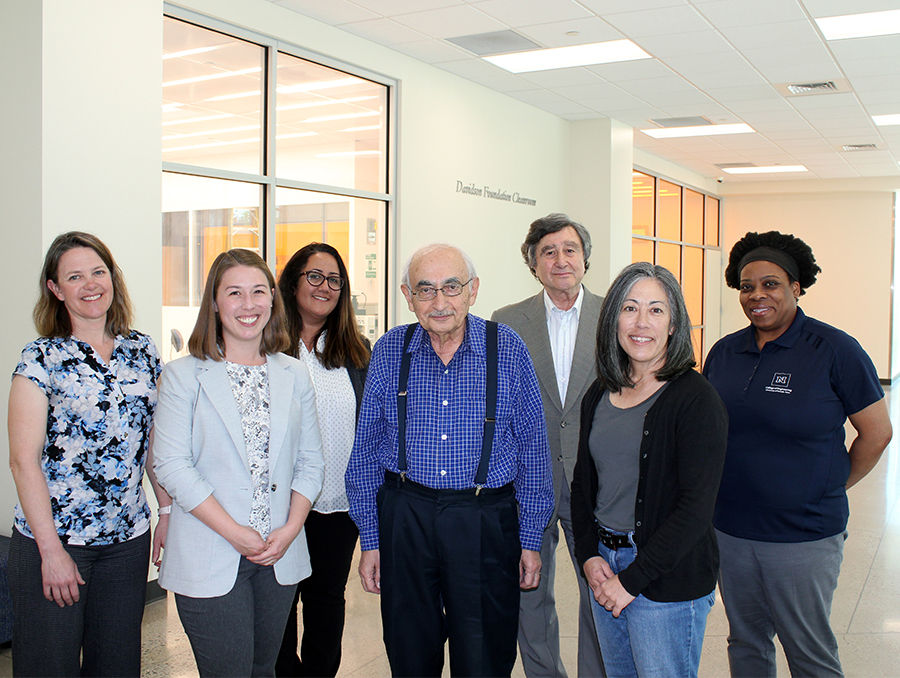Impressive achievements in both teaching and research distinguish the careers of Scott Casper, Richard Schultz and Yvonne Stedham. All three agree that when teaching and research are fully intertwined, they strengthen one another. As consummate professors, dedicated to their students and their fields of expertise, these University of Nevada, Reno faculty members cannot imagine doing one without the other.
Schultz likens it to breathing in – learning new things and acquiring knowledge – and breathing out – producing, distributing and imparting knowledge.
It is part of who and what they are, making it all the more fitting that these three have been named the University’s 2010 Foundation Professors, recognizing outstanding research and teaching achievements consistently demonstrated throughout their careers.
Foundation Professors come from a variety of disciplines: Casper is professor of history, Schultz is professor of geological engineering and geomechanics and Stedham is professor of management. The University of Nevada Foundation awards them each a grant of $5,000 for three years, which is used to further their professional endeavors.
Scott Casper, Bringing History to Life
In the classroom, Casper, professor and chairperson of the Department of History, has the gift of bringing the past alive. He has won several important teaching awards. In 2005, he was named winner of the Nevada Board of Regents’ Teaching Award. In 2008, he earned the Carnegie Foundation for the Advancement of Teaching and the Council for the Advancement and Support of Education Nevada Professor of the Year Award. The College of Liberal Arts recognized his achievements in teaching and research in 2009, awarding him the college’s Dr. Donald Mousel and Dr. William Feltner Award for Excellence in Research and Creative Activity.
Casper’s book “Constructing American Lives: Biography and Culture in Nineteenth-Century America,” won the 1999 Book History Prize from the Society for the History of Authorship, Reading and Publishing. Another book, 2008’s “Sarah Johnson’s Mount Vernon: The Forgotten History of an American Shrine,” earned impressive reviews for the book’s intimate, engaging weaving of the life of a former slave at George Washington’s iconic home in Mount Vernon, Va.
In reviewing the book, the Washington Post wrote that, “Casper deftly uses the limited sources available to depict Johnson’ life with an authenticity that is moving … There is no marker at Mount Vernon commemorating Sarah Johnson’s contribution to its preservation. Fortunately, Scott Casper has given her a written memorial, and it is altogether fitting and proper.”
“It was an enriching project for me to try to give a certain amount of voice to people in the past whose own words had rarely, if ever, been recorded,” Casper said. “It meant a lot to me to be able to do that, and to think about American history from the perspective of people who usually aren’t at the center of the stories.
“There is a deep interest in history in the United States. You can see it from what people read, you can see it from the historical programs that people watch on television. That’s exciting to watch. As a professor of history, it’s great to tap into where we can, maybe deepen it where we can,” he said.
As a historian, Casper notes that everything has to be “foot-notable.”
“But you also have to read those sources in a way that allows the life to flow through them, so that you can imagine what somebody is doing when she’s writing a letter. Or, what activities she’s writing about,” he continued. “Putting those pieces together, and trying to re-assemble how life worked at a place in time in the past.
“Teaching, thinking about the kind of questions students ask, makes it possible for me to write a book that might be read by people other than scholars in my field,” said Casper. “A lot of research, and writing, then, is about teaching. A lot of what I do in my research and my reading goes into what I do in the classroom. So I don’t see a lot of separation.”
Richard Schultz, Bending Rocks and Shaping Careers
Schultz studies how rocks form, bend or break. He applies this expertise in geomechanics to three areas of specialization: “One is geological engineering. Here, our work has application to the definition of large-scale rock properties for the design of projects such as highway slopes and open pit mines.
“Second is structural geology, the description of fault formation, how faults work, and how they contribute to seismic hazard,” said Schultz, noting this area of study also has important application for the exploration of water, minerals or oil supplies.
“Third is planetary science, and I focus on Mars,” he said. “A fault is a fault anywhere you go, but the Mars environment is different with smaller gravity, so you can study faults under different environmental conditions.”
It is unusual for an expert in geomechanics to have three areas of specialization, each with its own terminology, publications and research community. However, Schultz sees it as “a way of refreshing myself. I enjoy looking at the commonalities of these fields.”
His inquisitive nature and love of exploration are at the root of his teaching and research. “(Research) is not sitting around thinking,” he said. “We must bring in grant money to support our work. We must have ideas and an ability to capitalize on those ideas, getting something done that is meaningful to the science community and to society.”
He is known for working closely with his graduate students and developing strong and supportive research teams that have produced scientific contributions, as well as alumni who today hold positions in academia, government and private industry around the globe.
Of his students he said: “They are technically well trained, but for me, that’s not enough. Graduates from my research team look to compete favorably, to be able to hold their own with anyone else from other programs. Much of the success of a former student is based on presentations, how you speak, how you present yourself and interact with others.
“Our students generally don’t work on one single project; we like them to work on several projects with a core strength,” Schultz continued. “We encourage them to generate projects that are exciting enough that when they are done a prospective employer says, ‘ Wow, you did that?’ This means a project must be risky. It may not work, but if you never fail you aren’t trying hard enough. And, even if it didn’t work, they learned something.”
“We teach intuition, creativity and an ability to identify and solve problems,” he continued. “These can be developed, and they can be taught.”
To foster creativity, Schultz recommends his students take up a hobby outside of school. “Go hiking, cook, play music. It’s in those episodes when the answers show up. If you’re just grinding things out six or seven days a week, you won’t achieve creativity. Allow yourself the time to relax and that’s when the answer appears.”
And when it does? “That’s when the sparkle and excitement come through.”
“We need good people who can think and not just recite. They must be versatile and able to handle challenges,” said Schultz. “We are training people to think well.”
Yvonne Stedham, Teaching and Modeling Trust
Stedham has seen her area of expertise – international management – emerge as a centerpiece of today’s world of business. Globalized markets are not new and historical trends in globalization have long been studied. However, these topics are no longer simply an area of side interest for some. As Stedham says, “it is a must” for today’s business students to be prepared to manage in a global economy and understand cross-cultural issues.
Stedham, who came to the United States from Germany and whose research has taken her to Taiwan, Japan and many other countries, said: “There is no aspect of business that does not have an international component.”
Stedham’s research explores cross-cultural differences in business ethics and management practices and is focused on understanding issues of fairness and equity in the workplace. Her research has contributed to the literature on gender differences and gender discrimination in management.
“I have always been interested in fairness and ethics, and treating people with respect” she said. “With this goes the notion of trust which is so important in business and differs greatly across cultures.”
Stedham applies what she studies to the classroom and the courses she teaches. The principles of respect, ethics, fairness and trust are the cornerstones of how she structures her courses intended to build a “community” in the classroom. Her teaching effectiveness has been recognized with several awards.
In addition to teaching and research, Stedham is actively engaged with area businesspeople and human resources organizations such as the Society of Human Resource Management. She co-founded WeAct, an area nonprofit organization providing mentoring, development and networking for women in business and has served on the Nevada World Trade Council Board for several years. Through the National Judicial College, based on the University of Nevada, Reno campus, Stedham teaches managerial skills to presiding and chief judges, work that often takes her to their courtrooms and home offices throughout the United States.
“In a professional school such as business, engineering or the medical school, you need to be connected to practitioners,” she said. “We are creating the next generation of practitioners. I don’t think I would be a good teacher or researcher if I was not close to the practice of what I’m teaching or studying.”
Stedham strives to bring humor to her classrooms. “Talking about managing in a global economy presents the opportunity to tell funny stories based on mistakes companies have inadvertently made by not being aware of differences in culture or languages. “
The role she values most is that of mentor. In 2004 she received the University’s Advisor of the Year Award. Stedham just learned she has been selected as faculty mentor by the College of Business Senior Scholar, the college’s top undergraduate student scholar. It is the fourth time the annual honor has been bestowed upon her.
“Being selected Senior Scholar mentor is always very emotional for me. I always tear up a little,” she said. “It is an important moment when you realize that you have made a real difference in someone’s life. It is such a privilege to have the opportunity to have an impact on another person.”
John Trent, senior editor news and features, contributed to this story





